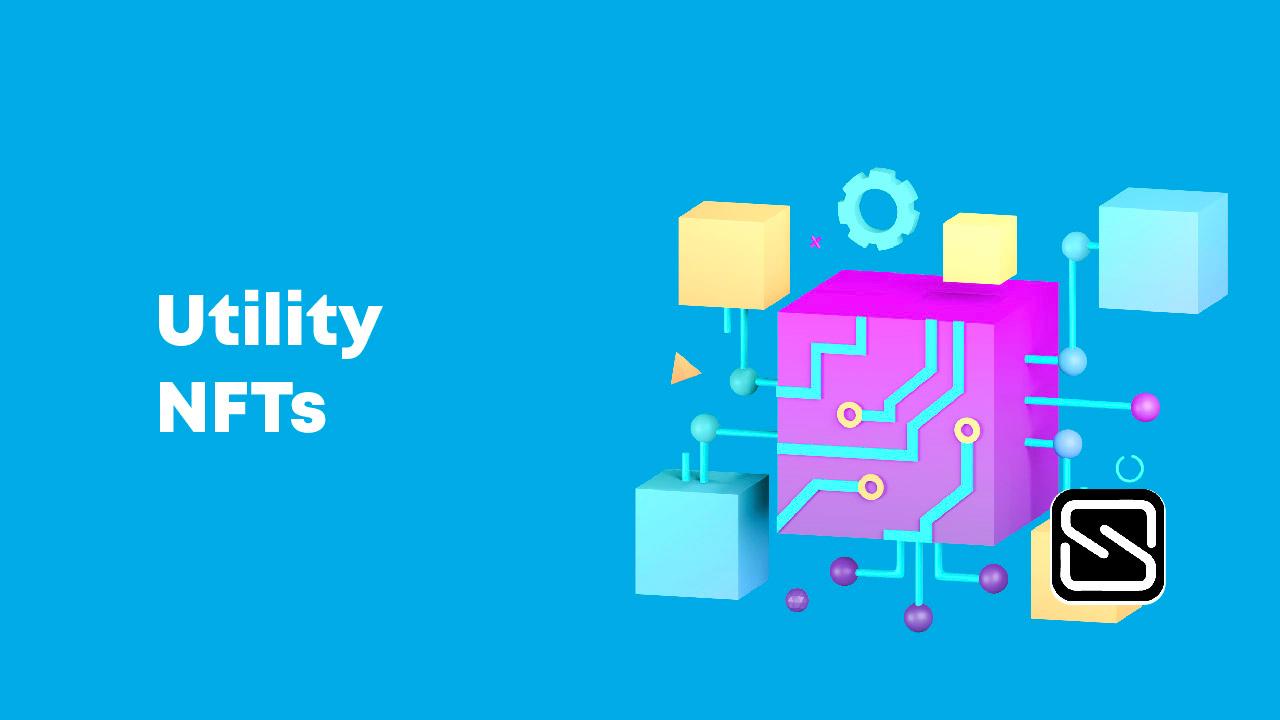What Are Utility NFTs?
Learn more about utility NFTs.
By Staff
When the global economy was drifting towards a not-so-fortunate historic collapse, the market for Non-Fungible Tokens was emerging like a ray of light from the creeks. Non-Fungible Tokens or NFTs are digital collectibles that represent real-world items. They can represent anything and everything starting from a human cell to a thousand-dollar-worth exclusive art piece.
Investors looking for new revenue streams are actively participating in the market growth of NFTs. Utility NFT initiatives are gaining attention in the midst of all of this to expand the reach of NFTs throughout the financial industry. These digital assets provide non-fungible token benefits while serving a utility or other purpose for token owners.
With utility NFTs, holders get a chance to avail rights and privileges otherwise unavailable to them in traditional setups.
Utility NFTs are special. Special in a way that the scope of their potential is not limited to the title of a typical digital collectible. When we talk about utility NFTs, we emphasize the word ‘utility’ because that is where the heart of this asset class lies. Precisely, utility NFTs refer to virtual assets that offer their owners privileges, benefits, or rewards that are otherwise not available for use. They bestow upon a right to extract a service or an advantage to the asset holder.
For example, if someone is an event organizer and plans to pull 500 people for the recent concert organized by his team. Instead of paper tickets, they issue utility NFT tickets for entry. Interestingly, NFT tickets will work just the same way as paper tickets. Each ticket will bear a unique ticket number and seat number. Also, each ticket will satisfy the ultimate utility of the ticket owner, which in this case, is the entry to the concert.
It is needless to say that NFTs are way better than paper tickets because they are digital, so you do not have to bother about losing them, have an in-built track on the blockchain to ensure originality, only the owner can claim the ticket, and better yet, each utility NFT ticket will be unique and so cannot be duplicated.
How do Utility NFTs work?
NFTs rely on blockchain and smart contract technology for their infrastructural excellence. The digital collectibles help holders to enforce a claim of ownership on tangible and intangible real-world items. Each transaction is stored on the decentralized public ledger to ensure the highest level of safety, transparency, and immutability. Most of the utility NFTs thrive on the Ethereum blockchain network to access smart contracts. The structure of utility NFTs is similar to normal NFTs. They also use cryptographic encryption to ensure the best safety and immutability of transactions.
The one-of-a-kind ID and metadata that no other token can duplicate help to sustain the element of uniqueness in NFTs. These non-fungible assets depend on smart contracts for offering ownership and limit transferability. At the time of minting an NFT, the miner executes the code in the smart contract that conforms to multiple standards like ERC-721. The information so retrieved is included on the blockchain managing the NFT. The minting procedure passes through three steps, that is to say, the creation of a new block, verification of data, and entry of the verified data on the blockchain.
The craze for utility NFTs is now on a surge. Industries are spending a hefty amount of investment on the research and development of these digital assets. Though the sector is growing, some industries have become powerful incubators for utility NFT projects. Presently, the market offers a wide range of NFT training programs that help participants to learn about the multiple use cases of NFTs.
They are also now being used in E-gaming, real estate, and art and fashion.
Additionally, as utility NFTs have evolved, they’ve presented new ways to provide holders with digital access to events and platforms. Americana, for example, is an online marketplace for physical collectors seeking luxury items, similar to resale sites like Grailed or StockX. To buy or sell items with Americana, users are required to hold a Something Token (their native NFT) to signify their membership to the ecosystem.
Another example is Token Proof, a token gating platform, and app, where users can verify the ownership of their NFTs and access real-world events without connecting their crypto wallet. Entrepreneur Gary Vaynerchuk, as another example, issued tickets to his VeeCon crypto conference using utility NFTs.
Beyond ticketing to one-off events, utility NFTs are also frequently used as membership cards for exclusive clubs or restaurants. NFT social clubs have created more long-term options for NFT holders looking to meet up with their community and collaborate in the same space. And earlier this year, internet collective Poolsuite launched Manor DAO, which will provide token-gated access to a property they plan to purchase called Poolsuite Manor.
To sum up, utility NFTs have been well-received because they encourage a community-focused ecosystem. Members get a fair chance to get rewards, discounts, preferential access to events, etc. Social, community and in-game utility NFTs are quite popular in the market presently. Experts suggest that in the near future, there will be more variants of utility NFTs leading the digital asset bandwagon effortlessly.
